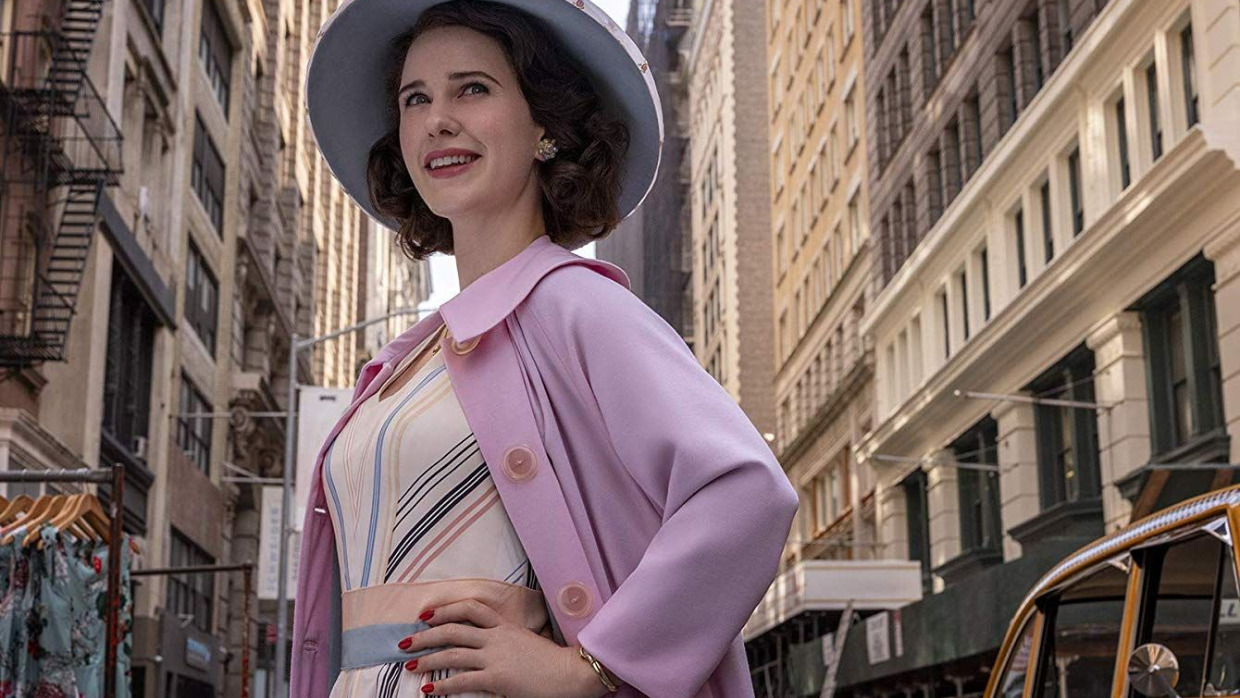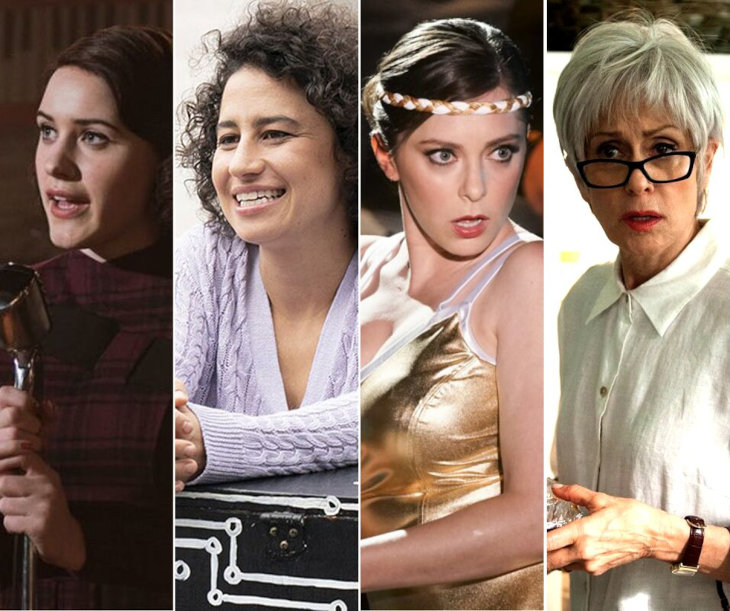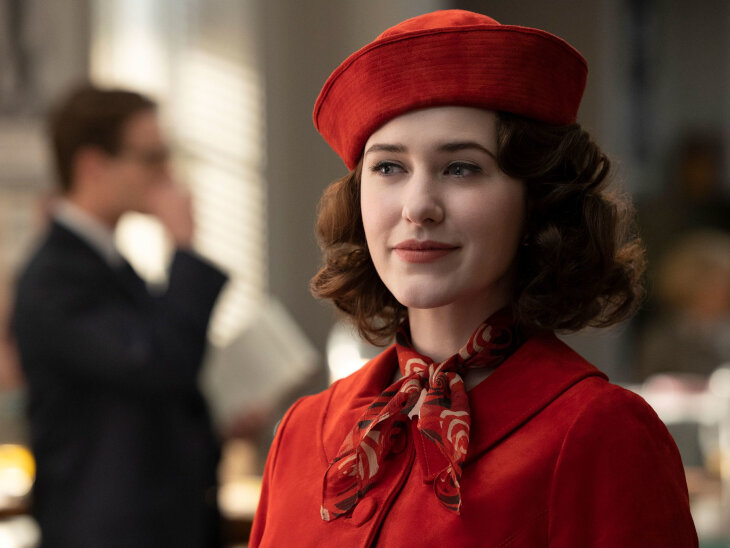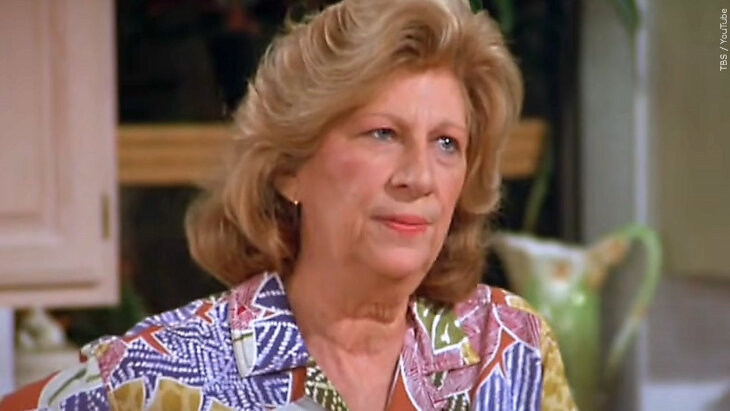 Vampire Weekend's Surprising Jewish Stories
Vampire Weekend's Surprising Jewish Stories


6 min read
We are bombarded with caricatures and stereotypes of Jewish women. It’s time for a makeover.
Contemporary film, tv and fiction writers would have everyone believe Jewish women all have dark hair, eyes, and a prominent nose. We are either the overbearing mother, ala Sophie Portnoy of Portnoy’s Complaint, in the Bronx, or the updated version, overbearing Naomi Bunch of Crazy Ex-Girlfriend who found her way to Scarsdale. We are dowdy loudmouths with no filters who henpeck our husbands and squeeze the life out of our children.
Don’t like this version? You can choose the alternative: Over-sexed, but somehow also repressed shopaholics, dull lovers, demanding, never-satisfied wives, and spoiled princesses.
The Social Network, the 2010 Oscar-winning film, suggests that grasping, shrewish Jewish women have annihilated their chances for marrying Jewish men who prefer the company of Asian women for the sole reason they aren’t Jewish. Roza Vallo, in the 2023 Writing Retreat, the uber-writer turned jailer/torturer, is thought to be modeled after author Julia Bartz’s Jewish grandmother who survived the Holocaust. The film You People presents an unhinged depiction of Jewish women with big noses and overall unattractiveness.
These images of Jewish women are insulting and damage the perception of Jewish women in the workplace, politics, and society. We are long overdue for an image makeover.
 From left, Rachel Brosnahan in The Marvelous Mrs. Maisel; Ilana Glazer in Broad City; Rachel Bloom in Crazy Ex-Girlfriend; Judith Light in Transparent.
From left, Rachel Brosnahan in The Marvelous Mrs. Maisel; Ilana Glazer in Broad City; Rachel Bloom in Crazy Ex-Girlfriend; Judith Light in Transparent.
Jewish women are hardly ever portrayed in positions of power despite ranking among the most educated women in the country. Jewish women are often played as privileged neurotics or apron-wearing yentas brandishing a wooden soup stirrer. There are occasional exceptions, such as Rachel Menken Katz, who ran a department store in Mad Men, but aside from Judge Judy and Ruth Bader Ginsberg, how often do we see Jewish women judges on big or small screens?
How often do we see or read about fictitious Jewish female doctors, MBAs, journalists, attorneys or advertising and fashion executives? Instead, we are bombarded with caricatures of Jewish women like Abbi and Ilana in Broad City, two young women with inconsequential jobs trying to make it in New York.
I grew up on a bloated diet of literary fiction and television shows. I had never read or viewed a performance about a Jewish woman like me. Instead, I was treated to the bagel-munching double-headed hydra of Marjorie Morgenstern and Marsha Zolenko in Marjorie Morningstar, Herman Wouk’s best-selling 1955 novel about a Jewish girl growing up in Manhattan. Marjorie Morgenstern is stunning, treated like a queen by her parents, and lives on NYC's Upper West Side. She attends college, but what she really would like to do is to become a famous actress and marry Noel Airman. Marjorie’s best friend, Marsha Zelenko, is another stereotype who can shop and talk with the best but is worldly, lewd, aggressive, and dislikable.
 The Marvelous Mrs. Maisel
The Marvelous Mrs. Maisel
Fast forward to 2017 when the The Marvelous Mrs. Maisel storms onto Amazon Prime. Her gorgeous wardrobe and snappy comebacks skyrocketed this fictitious character to national fame. Scratch the surface and Miriam Maisel is just another Jewish caricature. Divorce doesn’t stop her from loading her closet with designer clothes or leaving her kids as she tours the world. Contrast Marjorie Morningstar’s sidekick, Marsha, with Miriam’s foul-mouthed manager Susie Mayerson who cares little for anything or anyone but money. Things haven’t changed much between Marjorie’s time and Mrs. Maisel’s.
Shows like Netflix’s Jewish Matchmaking continue to perpetrate this theme of shallow Jewish Princesses obsessed with the superficial. Dani and Harmonie received a lot of airtime, each one is like an ethnic joke – silly, hung up on looks, six-pack abs, groomed eyebrows, and nearly 100% focused on the physical side of love.
Jewish women scholars have expressed at least two theories as to how these derogatory stereotypes of Jewish women evolved. The common denominators are cultural change and assimilation. In an opinion piece published in the Washington Post, Amanda Lee, a professor of French, traces the origins of the sex-starved, thirsty Jewess back to 19th-century France.
Lee suggests that at first Jewish women in France were depicted as beautiful, kind, and loving to pave the way for integration into French political and social institutions. As France became less tolerant of minorities, the portrait of the attractive Jewish woman was twisted into an unsavory, carnal female that was putrefying society.
Jewish women are also deserving of an accurate depiction of their identity.
Riv-Ellen Prell, an anthropologist, attributes Jewish mother/woman stereotypes to the burgeoning antisemitism that accompanied the onslaught of Jewish immigration from Eastern Europe into the United States in the late 19th and early 20th century and the desire for Jews to submerge their Jewishness. Prell suggests that antisemitism was also to blame as working Jewish girls began to become consumers. Jewish men began to worry that a new generation of Jewish women would want too much. Later this anxiety about assimilation would be translated into Borscht Belt humor and slipped into caricatures of Jewish women in film and fiction.
In today’s multicultural world, people like to see their skin tones, hobbies, interests, and religion portrayed so they can relate to them and feel validated. Jewish women are also deserving of an accurate depiction of their identity. Humor is fine, but a portrayal of an entire group of women should also be fair and balanced.
Anna Petrov Bumble, in her 1999 essay, “The Intellectual Jewish Woman Vs. the Jap in the Works of American Jewish Writers”, says these stereotypes are more than simply insulting – they are marginalizing. Bumble quotes Sylvia Barak Fishman, Ph.D., Emerita Professor of Contemporary Jewish Life in the Near Eastern and Judaic Studies Department at Brandeis University, writing, “When viewers recognize characters in a film or on television as ‘Jewish’ their reference point is a cultural literacy and cinematic tradition of Jewish stereotypes rather than their own experience. Viewers are not comparing Jewish characters to real Jews they know.”
Joyce Antler, Ph.D. Professor Emerita of American Jewish History and Culture and Professor Emerita of Women's, Gender, and Sexuality Studies at Brandeis, and author of You Never Call! You Never Write!: A History of the Jewish Mother (Oxford University Press, 2007), is more optimistic. As to the negative examples of shows and fiction I mention, Dr. Antler says, “I don’t know if this is a monolithic portrayal.”
 Actress Liz Sheridan who played Sienfeld’s mom
Actress Liz Sheridan who played Sienfeld’s mom
Dr. Antler points to productions like Transparent, which presents a different version of Jewish women. Other bright spots include Jerry Seinfeld’s mom in Seinfeld who is rational, supportive, and loving, especially when contrasted with another stereotype - George Costanza’s Italian mother. Another bright light, Israeli filmmakers are creating some formidable female protagonists, such as Tamar Rabinyan in Teheran, played by Niv Sultan, who is intelligent, resourceful, commanding, and attractive.
As a new generation of Jewish female writers emerges who are comfortable with their Jewish identity, we can hopefully look forward to more balanced, healthy portrayals of the accomplished, talented, courageous women we Jewish women are.
(1)Bumble, A. P. (1999). THE INTELLECTUAL JEWISH WOMAN VS. THE JAP IN THE WORKS OF AMERICAN JEWISH WOMEN WRITERS. Studies in American Jewish Literature (1981-), 19, 26-36. https://doi.org/10.2307/41205921
